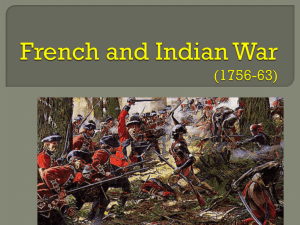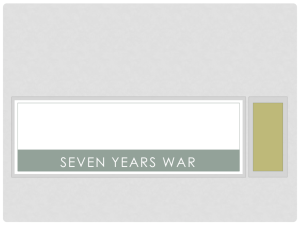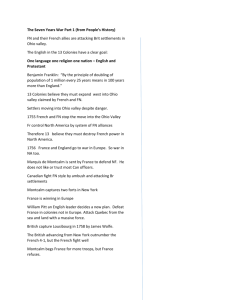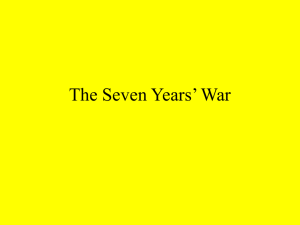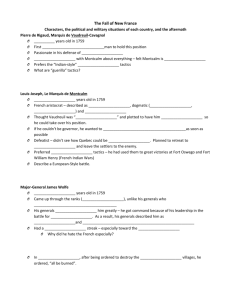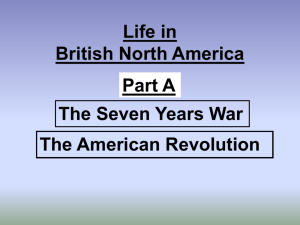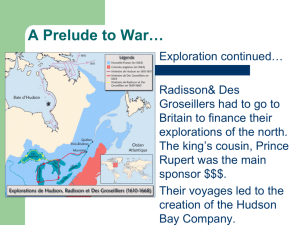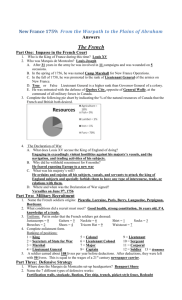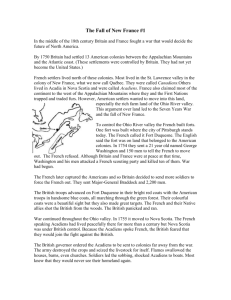The Seven Years War
advertisement
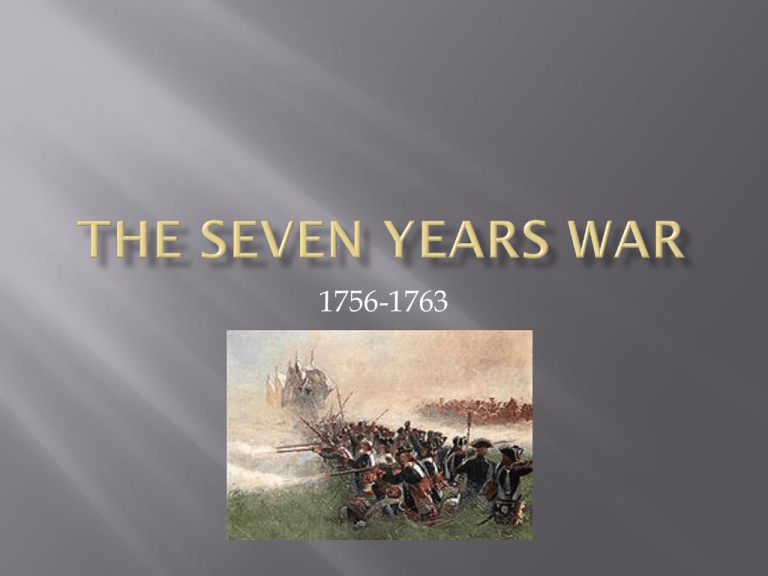
1756-1763 Fighting took place all over the world (1755). Fighting began in North America in the Spring of 1758 when the British captured Louisbourg and destroyed the fortress. This opened up the St. Lawrence River to a British invasion. A massive fleet sailed single file up the St. Lawrence River (June). This fleet stretched 150 km. Anchored near Ile d’Orleans just down river from Quebec. Where to attack? This was General Wolfe’s question The French held the high ground on the top of the cliffs. The Beauport Shore was his answer. Wolf sent 4 000 soldiers to attack the Beauport Shore (gentle slopping land). French Commander Marquis Louis-Joseph de Montcalm figured this would be the move and had a strong defence waiting. 440 British soldiers were killed or wounded. Wolfe would have to think of something different . A feint is a move that deceives. Wolfe organized some ships to make the French think he would attack Beauport Shore again. Montcalm sent his best troops to defend the shore. Instead Wolfe decided to attack Quebec from the west, but this was a risky move. Troops would need to climb the Anse-au-Foulon (a steep/narrow path that the French used to get their water. The British were to travel at night. On September 12th the British captured a French guard post. French speaking British soldiers pretended to carry a message from a French general downstream. They killed the guards with knives. Wolfe followed with 5 000 troops to the Plains of Abraham (open field next to Quebec). On the morning of September 13th, 1759. Wolfe stood at the front of his army on the Plains of Abraham. Quebec was defended by high stone walls. The British cut off trade from the river. The French would need to leave to get food. Montcalm would have to leave Quebec with troops, but his best troops were at the Beauport Shore due to Wolfe’s feint. Wolfe’s soldier stood shoulder to shoulder in red uniforms and muskets loaded. Montcalm & soldiers rushed out of Quebec and advanced on the British. The French got stretched out and gaps formed. The soldiers were out of breath and ineffective. The British front line fired with deadly results. They then knelt to reload, the second line fired, then the third. Every 20 seconds one British line fired. The French were cut to pieces. Wolfe and Montcalm were both killed. The Marquis de Vaudreuil, the French Governor surrendered to General Jeffrey Amherst, the new British commander. The Treaty of Paris (1763) was signed. Many locations were given back, but not New France (stayed British). One positive for the French was the fact that the Roman Catholic religion was allowed to continue and no churches would be destroyed.
